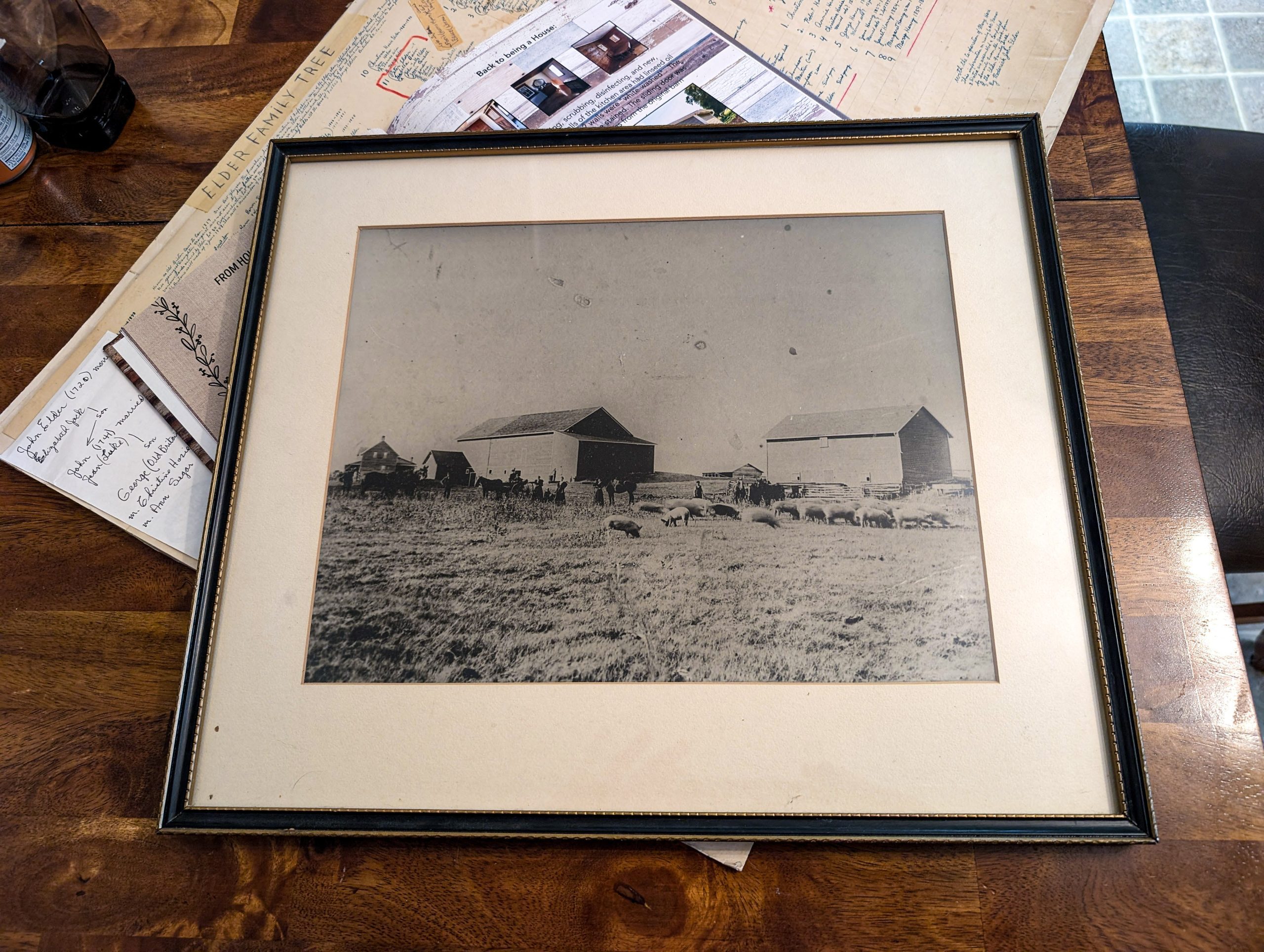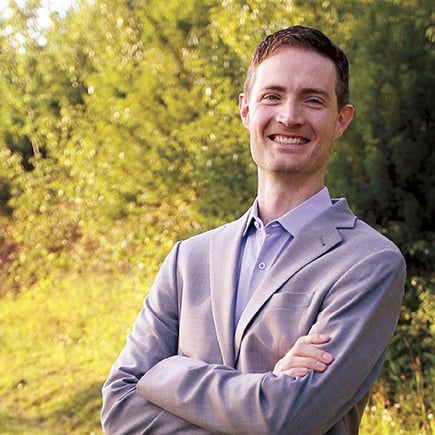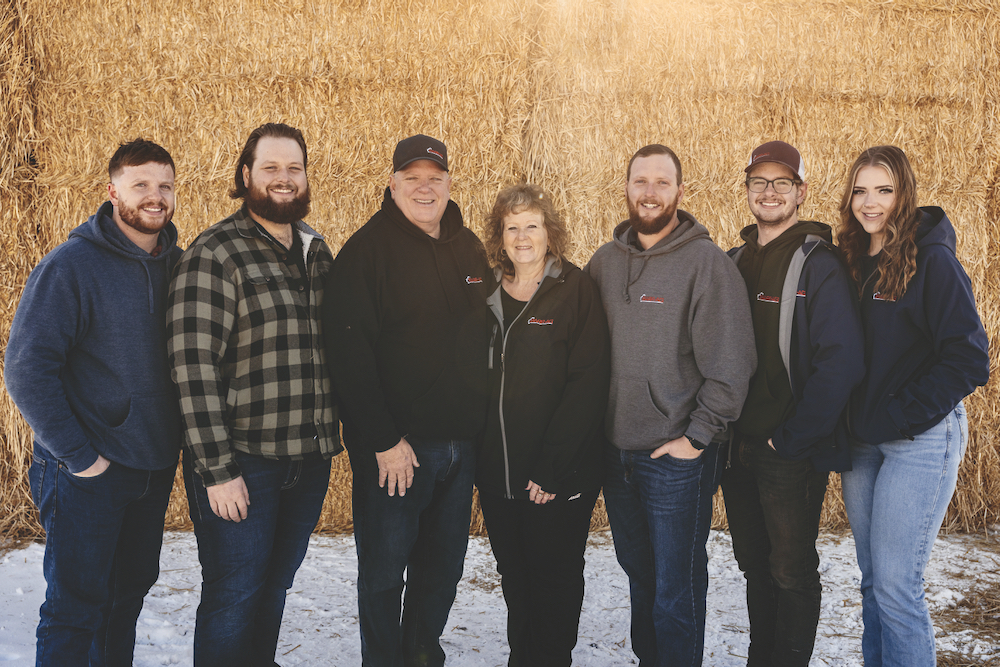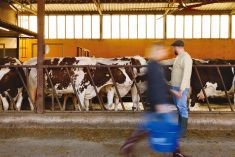If you build it, they will come, right? Dedicated and hard-working employees will if you follow the advice Barr-Ag has to offer about the “people factor”.
– April Stewart, CG Associate Editor
If you want something done, ask a busy person. We all sometimes say this, and there’s a good reason why. As generalizations go, this one is true. At least, it’s true if the person is the right kind of busy, the kind of busy that comes from getting things done efficiently because they’ve got a talent for keeping the job in perspective.
Read Also

Why you should preserve your farm’s history
There was a big cast iron dinner bell in the middle of the farmyard where Maggie Van Camp grew up….
These are people who maintain control. And because they’re so good at maintaining control, they excel at managing their daily work and often much more.
In other words, these are people you want on the farm. Their’s is also a kind of strength you want to encourage in your family. But is spotting that kind of ability really so easy? Is it an art or a science? Arguably, doesn’t finding the right person for the job seem just as much a work of instinct? That, and heart and trust?
Well, not on this Alberta farm.
Barr-Ag is one of Canada’s largest hay exporting businesses. It also seems incredibly lucky in the kind of talent pool it’s been able to bring together. However, like does attract like, and once you get talking to founder Barry Schmitt, the quality of their team seems anything but a fluke.
Closing in on two decades in business, Schmitt is a big believer in people and he makes the people around him believers, too, including the 103 employees who each contribute to grow, harvest, process and export timothy and other silage products to numerous countries each year.
There’s something else that hits you as well. As farm businesses go, this one seems a model UN. While a lot of farms may say their strength lies in their people, on this farm they really mean it. There are 18 countries of origin on its payroll.

With people coming together from so many backgrounds (including Canadians), this place is naturually rich in ideas about how to be efficient, how to solve problems and even how to create an enjoyable, profitable workplace.
But let’s go back to the farm. Barr-Ag is a “can’t-miss-it” place as you drive from Calgary north toward Edmonton on the Queen Elizabeth Highway II. Immediately after the Olds College exit, you find yourself staring at 65,000 tonnes of corn silage and the farm’s signage.
Plus there’s more. The farm has processing and storage facilities where it handles more than 175,000 tonnes of alfalfa, timothy, corn and barley silage and even straw that it processes into feed for hungry animals domestically and around the world.
Schmitt likes to say that what has happened at Barr-Ag is the result of hard work and building relationships with people and that it all goes back to when he was a farm boy from Outlook, Sask., venturing West with little more than a sense of adventure.
“I had six $100 bills and a ’78 Mustang,” says Schmitt, 61. “I didn’t start with a farm that was handed down.”
Now, he and wife Nancy, along with their children, have slowly and purposely built a business that will hopefully become the generational farm he has longed for since arriving in the province.
- READ MORE: Next gen talent scouting in agriculture
A ‘nervy’ start
Prior to Barr-Ag, Schmitt’s main business in Alberta was also in hay production and processing. In 1994, he signed on as a partner in TransFeeder, an Alberta-to-anywhere hay producer, processor, wholesaler and shipper that was part of a much bigger joint venture including multiple companies and even Sumatomo Corporation, the Japanese mega-conglomerate with its own bank.
Business was good. Hay production and market development continued steadily for many years and his company peaked with 200 employees. Asian markets wanted long-fibre product for their dairy herds and southern Alberta was just the answer.
While the business was up more often than down, it was high stress. Being a land-locked hay wholesaler 8,000 kilometres from customers and tied into a business partner with an 11-figure bottom line can be nervy at times.
“I was educated at the University of Saskatchewan, I worked at Olds College, and I’d been around a little bit, but the cultural differences between a Saskatchewan farm boy and a billion-dollar bank in Japan were rather huge,” Schmitt says. “They were creating 25-year business plans and we were dealing with the realities of daily weather.”
By 2004, he and his business partner decided to wind down TransFeeder and go from the corner office back to the tractor cab. Less than one year later, his new venture, Barr-Ag, was up and running as a farm and hay processor and wholesaler.
As Schmitt tells it, “I went from being the CEO of that company to putting coveralls on and I said, ‘I think we can grow it and process it and export it.’ And away we just went.”
What he couldn’t grow, he outsourced, which was no trouble at all: he knew virtually every hay farmer in Western Canada. He assembled a roster of elite farmers to produce high-quality hay which would eventually make its way into the feed bunks of international dairies.
The product came to Barr-Ag and was processed, containerized and sent to Asia. At first, it was 100 per cent timothy grass and 100 per cent headed to Japan and South Korea, which was a good start, but not, in Schmitt’s mind, a viable long-term plan.
Over the years, Schmitt had to get creative, building his marketing plan on his DIY ethic. He’d stuff hockey bags full of forages, get on a flight for South Korea and show off his samples to buyers.
After that it was on to China with not only timothy, but also alfalfa. Again, it wasn’t easy. Their initial shipment of timothy, which he believes was the first-ever from Canada, sat at the docks for seven weeks and was inspected more times than he could count.
“That was a huge step for us. We were very fortunate to find some very good customers and we expanded that business a lot,” Schmitt now says.
Success snowballed and today Barr-Ag boasts large, established markets in the Middle East and Asia.
The people factor
Beyond his farm staff, Schmitt also relies on many others, including Doug McBain who farms just south of Cremona in the shadow of the Rockies, an hour north of Calgary. McBain could see Schmitt knew business and wasn’t afraid to go for what he wanted — in other words, talent spotting isn’t a one-way street.
Speaking about Schmitt, McBain quickly goes to the “T” word.
“I guess you find someone you can trust,” he says.
“You have a business relationship, you have a personal relationship… some years you do better, some years maybe not, but it’ll all come out in the wash and you end up further ahead.

“It takes everybody working together. I mean, the trust goes both ways. I trust him, but he trusts me to produce a quality product.”
The hay business is fickle and with the weather, sometimes even nightmarish. On top of that, it’s essentially a cash system. There’s no hedging and it’s all based on quality, which either you have or you don’t.
“So, you have to be able to trust your buyer and your buyer has to be able to trust you, because that’s the only business management you have, trust,” says MacBain.
Spotting the talent
At Barr-Ag, talent means being able to see the big picture, not just the larger-than-life dollar signs in the spot market, Schmitt says.
“(Certain) farmers have a very short memory and it’s always the highest bidder,” he says. “The growers we deal with, it’s a big trust both ways. I feel they’re totally convinced I’m doing the best job,” but he says he believes they get that he gets it. “I’m dealing with their livelihood. It’s a two-way street.”

As a wholesaler, though, Schmitt has a tough road. He cannot run out of product. If he does, he risks permanently losing customers. Once a dairy farmer finds the perfect TMR for their animals, he explains, they rarely switch programs.
The quality of Barr-Ag’s custom mixtures is well known and understood by dairy customers. This spring, a Japanese dairy contended with hot and humid conditions. However, the cows on Barr-Ag’s silage were producing more milk than normal, and at a cheaper price, while production at other farms dipped.
“So, he tripled his orders right on the spot,” says Schmitt.
Committed to the work
To his knowledge, Barr-Ag is the only operation globally that produces and exports dehydrated barley silage.

Schmitt has many trusted allies in the business, including Shuichi Sakamoto, his sales and export manager who he met in 1999 through his previous venture. When Sakamoto joined Barr-Ag, his early days included a bit of everything, including logistics and marketing.
Sakamoto’s former company went out of business and it didn’t take long for Schmitt to recruit him. Schmitt needed help and it was a no-brainer to call his friend. The move was never just about business.
“He’s got this big heart and he cares about you,” says Sakamoto. “He believes that relationships build the business.”
Over the last 25 years, the two have shared everything from flights and business meetings to arguments and laughs. It’s Schmitt’s genius. “Once he lets you in,” Sakamoto says, “he trusts you. He’s not going to control you… he’s not a control freak. If he decided that you’re part of Barr-Ag, then right there he’s already trusting you.”
That belief in Sakamoto deepened his loyalty to the company and he believes it has for other employees
as well.
But don’t get it wrong. Schmitt does expect commitment, like in the April to November rush. “If you’re willing to work like that, then you earn my respect right away,” he says. “I find myself with people I can trust and be comfortable with. Then, we all go to work and try to do the best we can.”
















